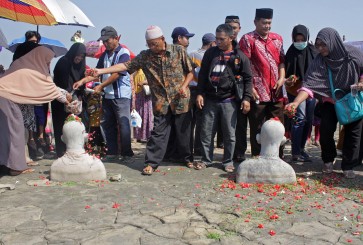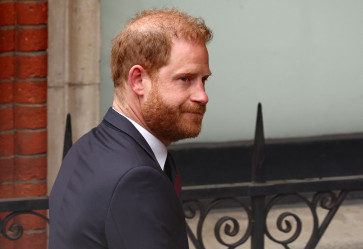Mothers of cerebral palsy children fight for medical marijuana
Change text size
Gift Premium Articles
to Anyone
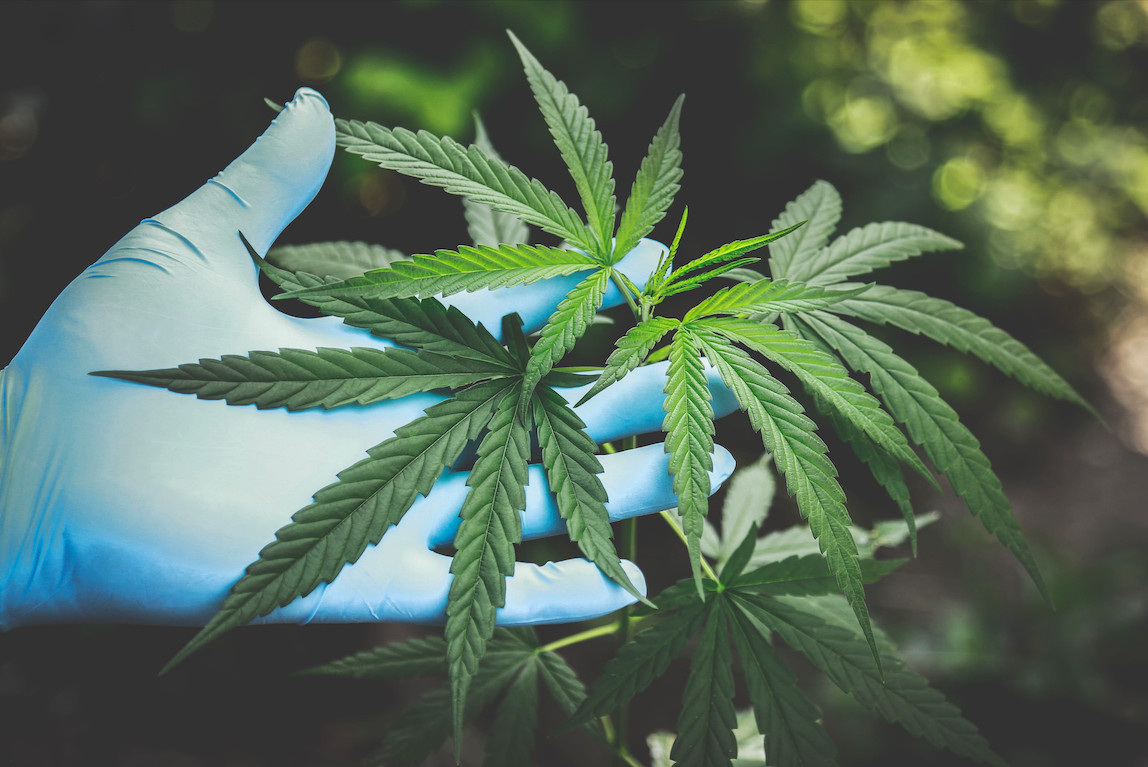
The legality of medical marijuana remains in limbo but proponents continue to wage their campaign.
Dwi Pertiwi, Nafiah Murhayanti and Santi Warastuti are just three of a number of Indonesian mothers battling for the legality of medical marijuana (cannabis). They are waging this fight for the sake of their children, all of whom have cerebral palsy. According to recent data by Hermina Hospital, there are at least nine cerebral palsy cases per every 1,000 births.
There are two active ingredients among thousands of substances contained in cannabis: THC, or tetrahydrocannabinol, and CBD, or cannabidiol. While CBD is a promising, addiction-free option for pain relief, THC is the psychoactive component that causes addiction. Both substances are banned by the government.
Constitutional Court chief justice Anwar Usman announced on July 20 that the nation’s top court had rejected the mothers’ petition “in its entirety”, reported Tempo. The decision effectively renders the substance illegal, even for medical purposes.
In 2022, the issue regained the public’s attention after a photograph of Santi carrying a poster written with the words, “Help, my child needs medical marijuana” during the always-busy car-free day near Bundaran HI, went viral.
Following the much-shared story on social media, Health Minister Budi Gunadi Sadikin said his ministry would soon publish new regulations aimed at allowing research on the medicinal benefits of marijuana.
However, on July 12, Tempo reported that the chief of the Indonesian National Narcotics Agency (BNN), commissioner-general Petrus Golose, stated that his party rejected the legalization of medical marijuana in Indonesia.
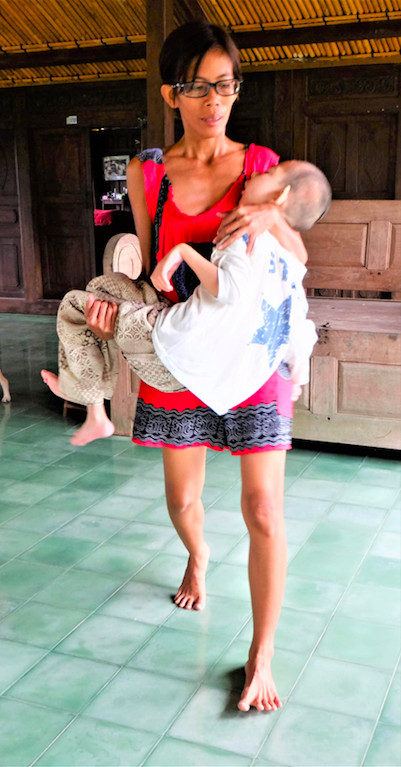
Hopeful
“For me, it is not just about the use of marijuana itself, but every substance that has a benefit for others should be researched further,” Dwi shared.
Dwi herself lost her son Musa in 2020 when he was just 16 years old. She wants to make sure that other children with Musa’s condition have more of a fighting chance for a better quality-of-life.
“Why is it urgent? Because kids who have seizures can’t wait any longer,” Dwi added. She explained that every new seizure causes the cognitive and health condition of children with cerebral palsy to deteriorate.
Prior to her request to the Constitutional Court of Indonesia, Dwi brought her son to Australia to undergo CBD (cannabidiol, or cannabis based) therapy in 2016. Dwi said that right after the therapy, Musa’s muscle tone became softer -- a positive development.
At the time, Australia was one of the few countries that allowed marijuana to be used for medical purposes. Just recently, neighboring Southeast Asian countries have started to ease restrictions on cannabis use. Thailand legalized marijuana consumption in June, while Malaysia allowed cannabis use for medicinal purposes in 2021.
Dwi added that for at least six months after the therapy, her son did not have seizures and slept better at night. Prior to the therapy, Musa could have seizures about two to three times per week.
“I saw how Musa’s progress was a lot better after he got therapy from Australia, and that’s why I would like Pika to have the same treatment,” Santi shared. Santi met Dwi while their children were getting therapy in Yogyakarta back in 2018.
Santi, who is the mother of a 14-year-old named Pika, said that her daughter has for seven years used a prescribed medicine -- but it has not shown any significant effects. Pika was born healthy, but began getting sick in 2015.
Santi says she misses so many things from when Pika was healthy.
“She was just a happy child back then.”
Dhira Narayana, the executive director of Yayasan Sativa Nusantara (YSN), said the need is urgent to legalize medical marijuana. Dhira explained that there are mothers who share the same experience as Dwi, Santi and Novi.
Dhira added that in Indonesia, marijuana is often considered to be something negative, thus research about medical marijuana in Indonesia hardly exists.
“Time is running out, because research about medical marijuana has never been done in Indonesia,” Dhira shared.
Dhira said that medical marijuana would not only be helpful for children with severe cerebral palsy but also for other people who suffer severe seizures such as those with epilepsy. CBD could also help improve the quality-of-life of cancer patients, by increasing their appetite and reducing their pain from the chemotherapy sessions.
Citing statistics from the University of Gadjah Mada, in Indonesia itself, there are at least 1.5 million to 2.4 million people with epilepsy that need to be treated.
A 2021 journal titled Medical cannabis for severe treatment resistant epilepsy in children: a case series of 10 patients written by Rayyan Zafar, Anne Schlag, Lawrence Phillips and David J Nutt, published by BMJ Paediatrics Open from the United Kingdom, stated that medical marijuana can help people with seizures.
YSN has tried to persuade the government to conduct research on medical marijuana since 2015. However, with the current health minister, Dhira is hopeful that research on medical marijuana will begin, as Indonesia has never conducted research before.
Dhira added that if the government put in enough effort, the trial could start as soon as possible. “The medicine that was used by Ibu Dwi is available. What the researchers can do is to take a look at it and let the kids who have similar conditions try it,” Dhira said.
Dr. Dicky Budiman, chief of the foreign department of the Indonesian Medical Association Board, told The Jakarta Post that the current research on marijuana in the medical world is a result of genetic engineering and there should be more research through randomized control trials.
He added that there is a subtle difference between medical and recreational use in the country.
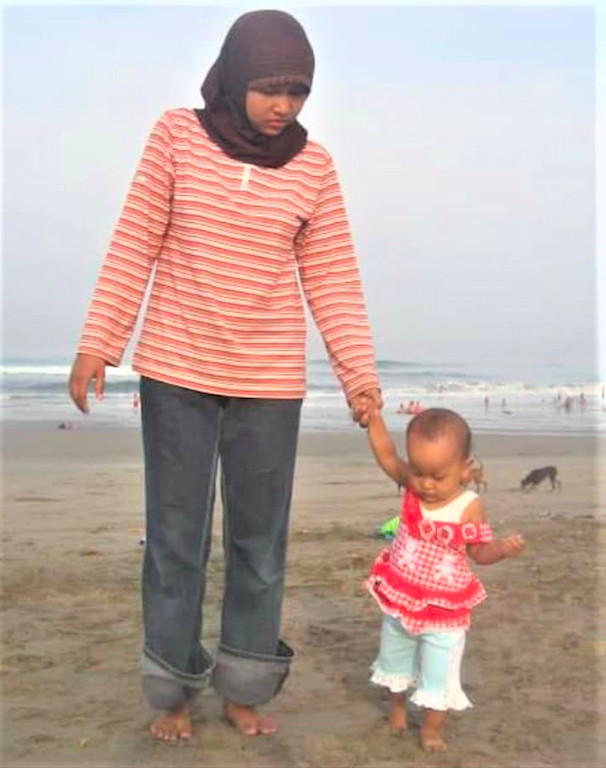
Flaw in the narcotics law
Iftitah Sari, a representative from Institute for Criminal Justice Reform (ICJR) explained that there is a flaw in Indonesia’s narcotics law, specifically in article 4 and article 8 verse 1.
In the first verse of article 4, it is stated that there is a guarantee of the availability of narcotics to be used for the benefits of medical or health services, and the development of science and technology.
However, contradicting that is article 8, which states that narcotics belonging to Schedule I are prohibited from being used for the benefit of medical purposes.
“Therefore, there should be a review regarding our law; if not, the use of legal marijuana for people who need it the most will be difficult,” Iftitah added.
“Just because there are people who are not able to take responsibility [for their misuse of marijuana], that doesn’t mean that people should neglect our children’s rights,” Dwi closed.


